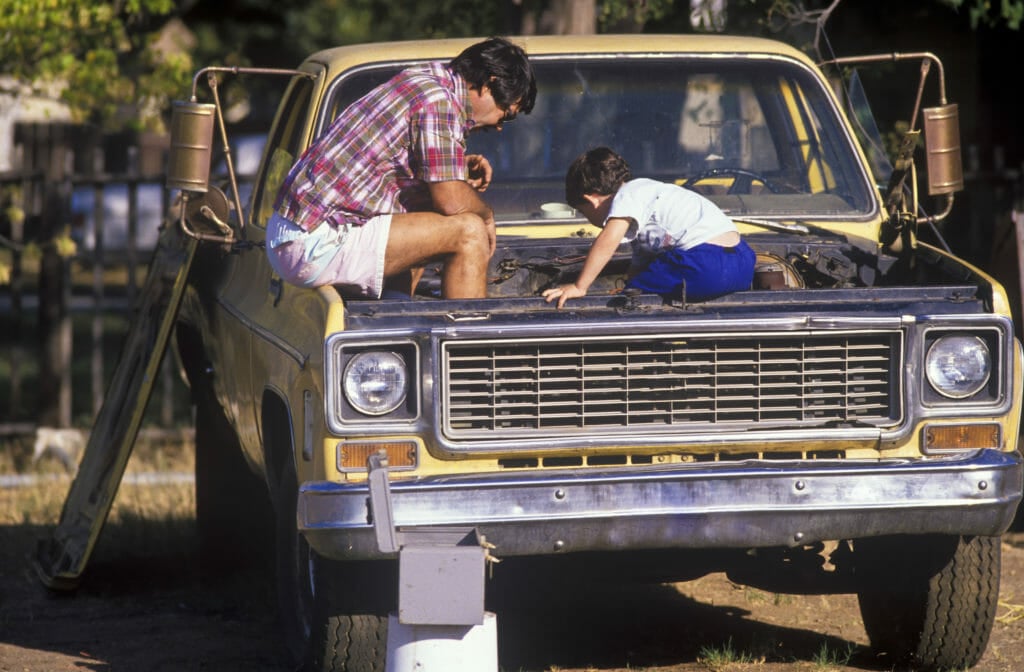Transition Planning in Family Owned Auto Repair Shops

In our last blog, we talked about the importance of exit planning and making sure that owners give themselves enough time to fix any problems with their auto shops before they put them up for sale. For some owners, there may be an additional complexities to a transition, though. Many auto repair businesses are family owned and operated. Transitioning a business from one generation of leadership to another one or just to another family member can be tricky.
With a family business, all the same challenges of exit planning are still present. The company needs to have management in place and committed to staying through the transition. It should have good cash flow. It should have written and implemented policies and procedures that the staff are familiar with. The company cannot be, in any way, dependent on the current owner to function.
Family Is Complicated
With a family owned and managed business, however, there are extra wrinkles. People often think that family owned businesses are better or run better because the people who operate them are related. They should understand each other, right? Unfortunately, greater understanding doesn’t always mean great harmony. Sometimes this does happen. Often, people with really close ties have worse communication than unrelated coworkers. Family members know just what buttons to push to get a reaction out of each other – at home and at work.
Another problem is that owners of family businesses may make assumptions that owners who intend to sell to third parties will not. The owner may assume that his son or daughter wants to take over the business or that they are capable of running it as profitably. He may assume that they know when he plans to retire or that they will keep the business as it is without making large changes in the way it’s run. All of these assumptions can create problems for both the company and the family if they are not communicated and agreement between those family members isn’t reached before the transition.
Let’s go through each of these assumptions and the problems they can cause.
Problems for Family Owned Auto Shops in Transition
The owner assumes that the next generation wants to take over the business. It’s very common for younger people to work in the family business before they decide what they want to do with their lives. Figuring out what you’re good at and what you enjoy doing can be a process. If the economy is poor, a job in the family business may be a lifeline. Not every son wants to do what Dad does, though, and you can’t run a business successfully if you’re not committed to it. If the next generation isn’t committed and the owner needs to be paid over time to fund his retirement, that’s a big problem.
The owner assumes that the next generation can run the auto shop profitably. This is similar to the problem above, but not the same. Too many owners do not take the time to make sure that their successors have the training, education, and experience they need to run the auto shop. The new owner may want to run the shop well, but if he cannot because of a lack of training, it will frustrate staff and customers. The old owner may be called back to shore things up. Again, many people’s livelihoods depend on the auto shop running well, so there’s a built in conflict. Capable employees may also resent that the owner’s kids make decisions they aren’t trained to make that affect everyone directly.
The owner assumes that the next generation is ready to take over when he decides he wants to leave. If both the old and the new ownership of the business aren’t clear about the timeline of the transition, there will be conflicts in the interim. The younger generation may not want to hang around until their parents are ready to retire like Prince Charles waiting for the crown. Sometimes the younger generation is forced to take over if the owner becomes unexpectedly disabled or dies and they are inadequately prepared because the owner felt no urgency to train them. Needless to say, it’s better for everyone involved to decide on the timeline and begin training and planning the transition together.
The owner thinks that the next generation will keep things as they are. Many owners have spent their lives building their businesses and are both financially and emotionally invested in their legacy. It’s normal for new owners to want to make changes, but big changes can have unexpected impacts on the company and the family.
Better Communication Is Key
In all of the above scenarios, increasing communication would be the most important step to solving or avoiding problems. The when, where, why, what, who, and how of the transition should be clear between all parties before any of the legal or financial aspects of the process are decided. Too often families think that because they’re family, they are on the same page as far as the company goes.
If the ramifications of poor communication were only hurt feelings, this might not be so terrible. But too many owners need the company to remain successful after they exit so they have the income to fund retirement. No one wants to fail and have that failure result in dire economic consequences for the older generation. This is why family owned auto shops that expect to continue on with management from a new generation should begin thinking about transition planning even earlier than ones who expect to sell to a third party.


How do I see other peoples comments ?